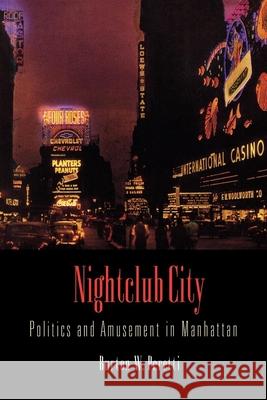Nightclub City: Politics and Amusement in Manhattan » książka
Nightclub City: Politics and Amusement in Manhattan
ISBN-13: 9780812239973 / Angielski / Twarda / 2007 / 304 str.
Nightclub City: Politics and Amusement in Manhattan
ISBN-13: 9780812239973 / Angielski / Twarda / 2007 / 304 str.
(netto: 214,57 VAT: 5%)
Najniższa cena z 30 dni: 222,55
ok. 22 dni roboczych.
Darmowa dostawa!
In the Roaring Twenties, New York City nightclubs and speakeasies became hot spots where traditions were flouted and modernity was forged. With powerful patrons in Tammany Hall and a growing customer base, nightclubs flourished in spite of the efforts of civic-minded reformers and federal Prohibition enforcement. This encounter between clubs and government-generated scandals, reform crusades, and regulations helped to redefine the image and reality of urban life in the United States. Ultimately, it took the Great Depression to cool Manhattan's Jazz Age nightclubs, forcing them to adapt and relocate, but not before they left their mark on the future of American leisure."Nightclub City" explores the cultural significance of New York City's nightlife between the wars, from Texas Guinan's notorious 300 Club to Billy Rose's nostalgic Diamond Horseshoe. Whether in Harlem, Midtown, or Greenwich Village, raucous nightclub activity tested early twentieth-century social boundaries. Anglo-Saxon novelty seekers, Eastern European impresarios, and African American performers crossed ethnic lines while provocative comediennes and scantily clad chorus dancers challenged and reshaped notions of femininity. These havens of liberated sexuality, as well as prostitution and illicit liquor consumption, allowed their denizens to explore their fantasies and fears of change.The reactions of cultural critics, federal investigators, and reformers such as Fiorello La Guardia exemplify the tension between leisure and order. Peretti's research delves into the symbiotic relationships among urban politicians, social reformers, and the business of vice. Illustrated with archival photographs of the clubs and the characters who frequented them, "Nightclub City" is a dark and dazzling study of New York's bygone nightlife.











